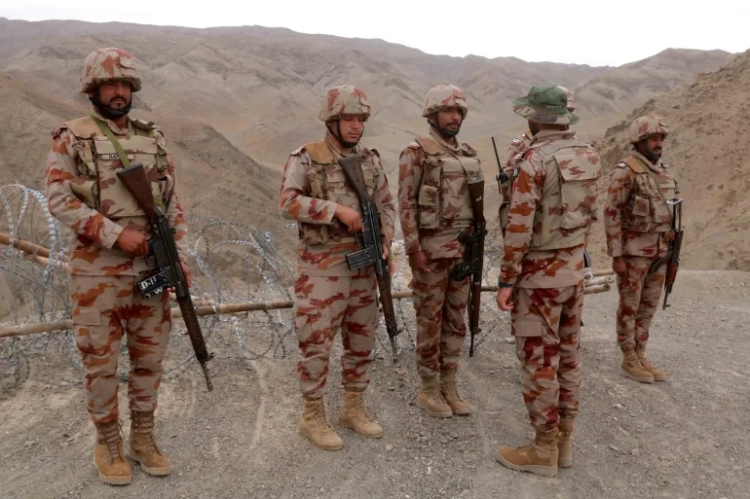Pakistani and Afghan Forces Exchange Deadly Gunfire at the Border: What’s Next?
The conflict between Afghan and Pakistani forces has escalated, leading to deadly clashes in various border areas. Both countries accuse each other of aggression and violation of sovereignty.
Afghan representative Zabihullah Mujahid reported that 58 Pakistani soldiers were killed in "retaliatory" attacks that occurred on Saturday, following explosions in Kabul and Paktika. In response, the Pakistani military acknowledged the loss of 23 of their soldiers but claimed to have killed 200 Taliban and associated "terrorists." The Pakistani Interior Minister described the Afghan attacks as "unprovoked firing."
The Taliban accuse Pakistan of orchestrating terrorist attacks on its territory, while Islamabad has not confirmed these allegations. Tensions between the two countries have risen amid accusations that the Taliban is providing shelter to members of the "Tehrik-i-Taliban Pakistan" (TTP), which Kabul denies.
What events led to the clashes?
The situation intensified on Saturday when Afghan forces began attacks on border areas of Pakistan. Clashes occurred in places such as Angoor Adda, Bajaur, Kurram, Dir, and Chitral. Reports indicate that Afghan troops killed 58 Pakistani soldiers and captured 25 army posts.
Mujahid stated that Afghan forces control the situation at the border and that illegal activities are largely contained. At the same time, the Pakistani military characterized the actions as "cowardly" and aimed at destabilizing the region.
They also noted that many Taliban positions were destroyed during the clashes and 21 enemy positions were captured on the Afghan side of the border.
Although the main phase of hostilities has ended, periodic exchanges of fire continue in the Kurram area.
What caused the conflict?
On Thursday, two explosions occurred in Kabul, which may have also provoked the escalation. The Taliban accused Pakistan of violating Afghanistan's sovereignty, while Islamabad insisted on the need to stop the activities of Pakistani Taliban.
According to analysts, the deterioration of relations between Pakistan and the Taliban is linked to an increase in TTP attacks on Pakistani forces, as well as intensified airstrikes by Islamabad on suspected Taliban hideouts in Afghanistan.
In the first half of 2023, over 2,400 fatalities were recorded in Pakistan, raising serious concerns about the rise in violence.
What are the views of the parties?
Pakistani Prime Minister Shehbaz Sharif condemned the recent events, emphasizing that the army provided a worthy response. The Interior Minister described the attacks as "unprovoked" and pointed to the shelling of civilians as a violation of international law.
Afghan authorities, in turn, refer to their actions as retaliatory measures and warn of their readiness to defend their airspace.
What is the international reaction to the conflict?
The escalation of the conflict has raised concerns in the region. The Iranian Foreign Minister called on both sides to show restraint, emphasizing the importance of stability for all of South Asia. Similar calls have come from Qatar and Saudi Arabia, which insist on the necessity of peaceful dialogue.
India, for its part, has not yet commented on the situation, although the attention given to cooperation with the Taliban may affect the situation.
What are the prospects for further escalation?
Analysts believe that both sides want to avoid escalation despite the existing tensions. The likelihood of a significantly large-scale conflict is low, as Afghanistan does not possess comparable military resources. However, the ongoing presence of the TTP in Afghanistan remains a key factor of tension.
Experts argue that dialogue is necessary for conflict resolution, and the parties should seek ways to resolve their differences peacefully.
Read also:

The title translates to "Poet Soviet Urmambetov."
Poet S. Urmambetov was born on March 12, 1934, in the village of Toru-Aigyr, Issyk-Kul District,...

Tourist Area Management Program
The project "USAID Business Development Initiative" (BGI), within the tourism...

Types of Insects Listed in the 2004 IUCN RLTS Not Included in the Red Book of Kyrgyzstan
Insect species listed in the 2004 IUCN RLTS, not included in the Red Book of Kyrgyzstan 1....

Prose Writer, Journalist Djapar Saatov
Prose writer, journalist Dzh. Saatov was born on February 15, 1930, in the village of Alchaluu,...
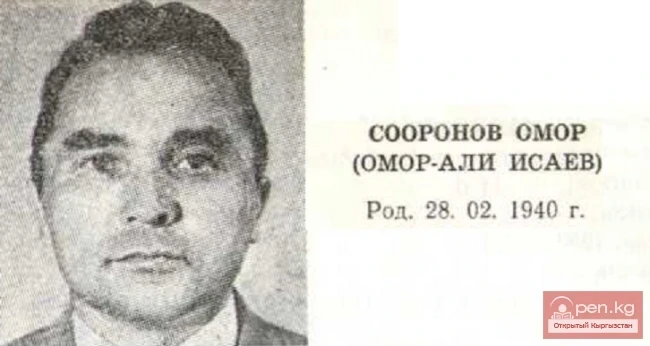
Poet, Critic, Literary Scholar Omor Sooronov
Poet, critic, literary scholar O. Sooronov was born in the village of Gologon in the Bazar-Kurgan...

Prose Writer, Critic Dairbek Kazakbaev
Prose writer and critic D. Kazakbaev was born on June 20, 1940, in the village of Dzhan-Talap,...
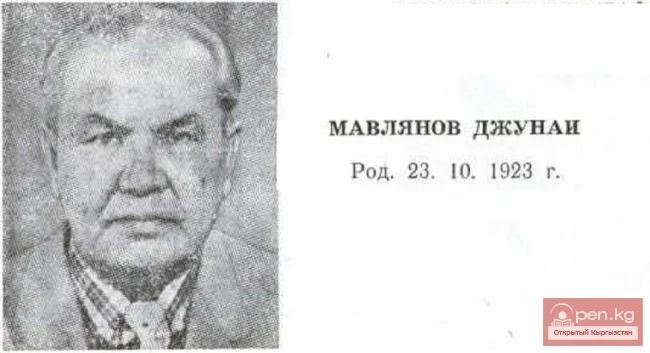
Prose Writer, Poet Junay Mavlyanov
Prose writer and poet J. Mavlyanov was born in the village of Renzhit (now the village of...
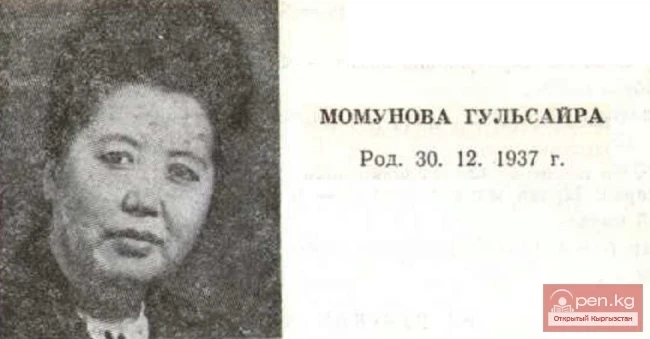
The Poet Gulsaira Momunova
Poet G. Momunova was born in the village of Ken-Aral in the Leninpol district of the Talas region...
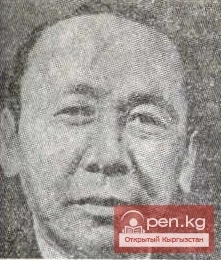
Poet Mukambetkalyy Tursunaliev (M. Buranaev)
Poet M. Tursunaliev was born on January 11, 1926, in the village of Alchaluu, Chui region of the...
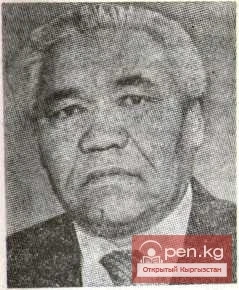
Prose Writer Kachkynbay (KYRGYZBAI) Osmonaliev
Prose writer K. Osmonaliev was born on March 5, 1929, in the village of Chayek, Jumgal district,...
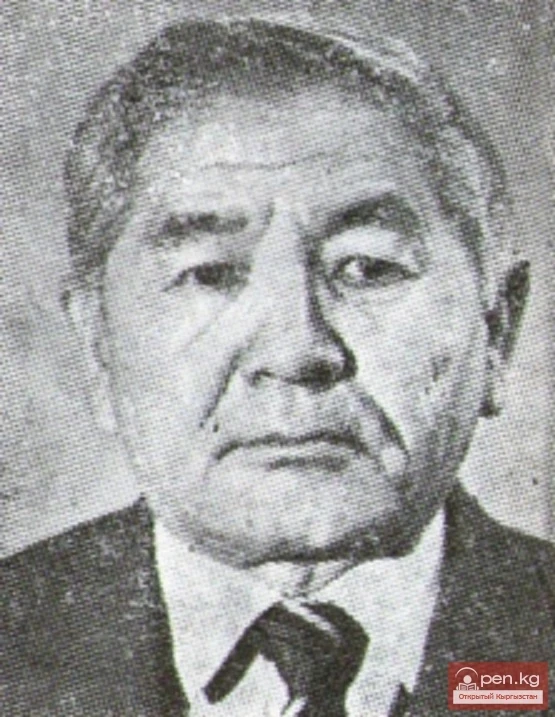
Poet Dzhaparkul Alybaev
Poet Dzh. Alybaev was born on October 12, 1933, in the village of Birikken, Chui region of the...
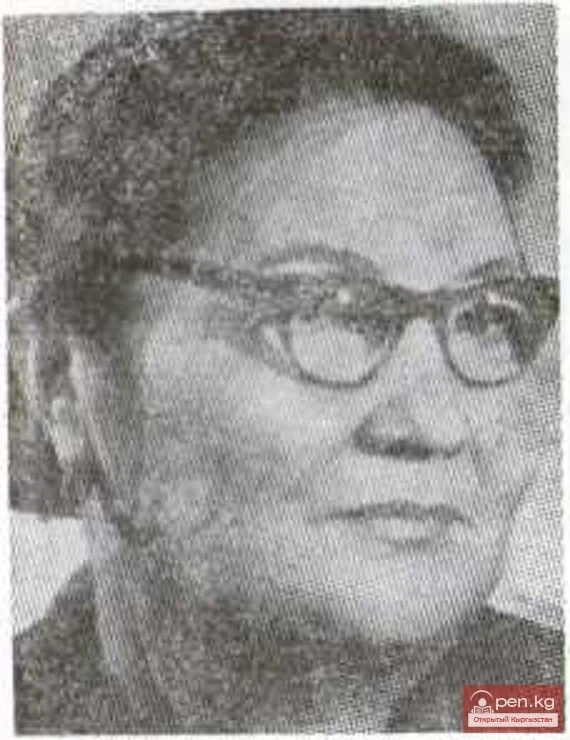
The Poet Tenti Adysheva
Poet T. Adysheva was born in 1920 and passed away on April 19, 1984, in the village of...
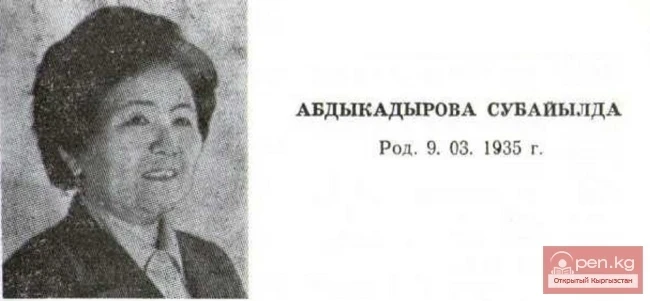
The Poet Subayilda Abdykadyrov
Poet S. Abdykadyrova was born in the village of Sary-Bulak in the Kalinin district of the Kirghiz...

Poet, Prose Writer Medetbek Seitaliev
Poet and prose writer M. Seitaliev was born in the village of Uch-Emchek in the Talas district of...

Types of Insects Excluded from the Red Book of Kyrgyzstan
Insect species excluded from the Red Data Book of Kyrgyzstan Insect species excluded from the Red...
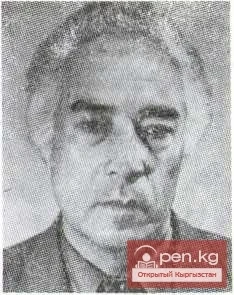
Poet, storyteller-manaschi Urkash Mambetaliev
Poet, storyteller-manaschi U. Mambetaliev was born on March 8, 1934, in the village of Taldy-Suu,...
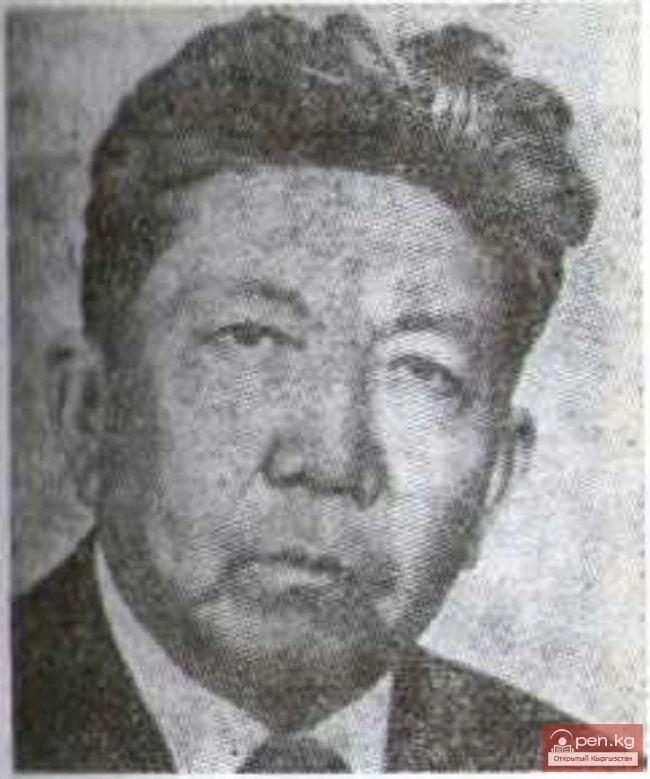
Poet Abdilda Belekov
Poet A. Belekov was born on February 1, 1928, in the village of Korumdu, Issyk-Kul District,...
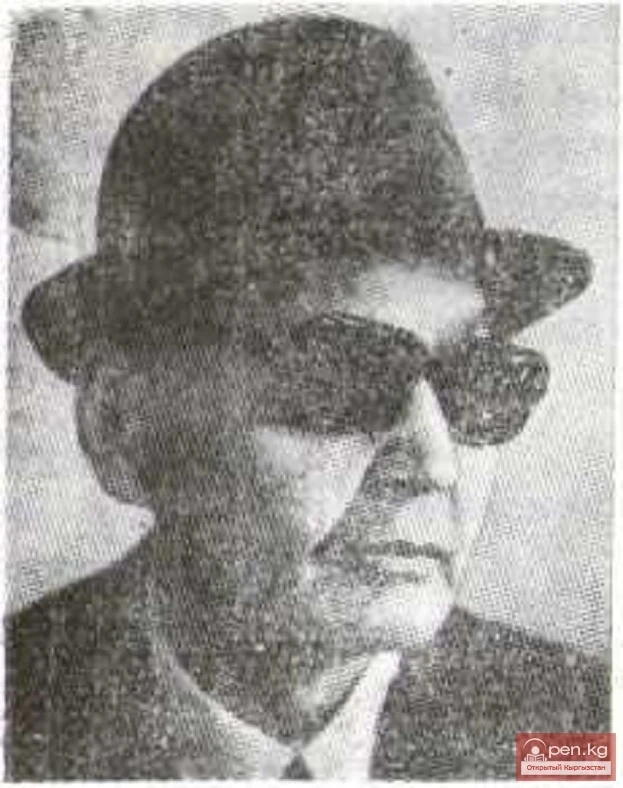
Poet Abdravit Berdibaev
Poet A. Berdibaev was born on 9. 1916—24. 06. 1980 in the village of Maltabar, Moscow District,...
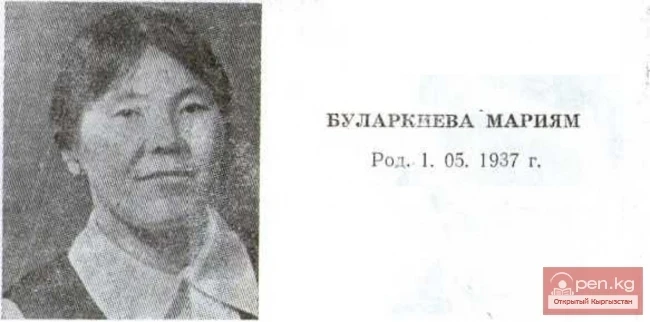
Poet Mariyam Bularkieva
Poet M. Bularkieva was born in the village of Kozuchak in the Talas district of the Talas region...
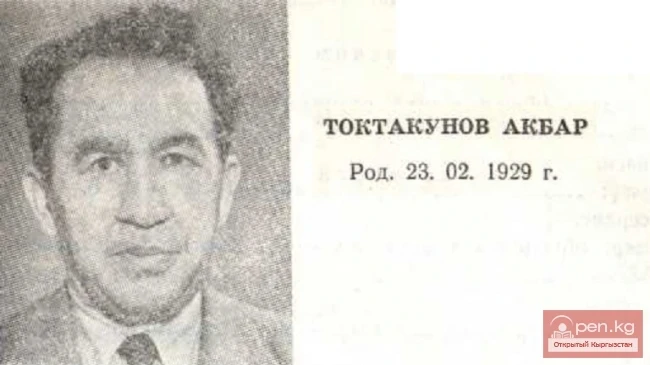
The Poet Akbar Toktakunov
Poet A. Toktakunov was born in the village of Chym-Korgon in the Kemin district of the Kyrgyz SSR...
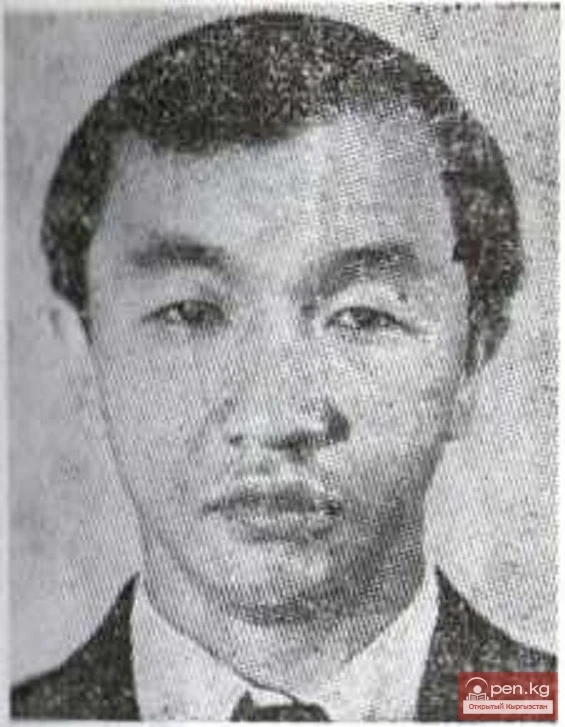
Critic, Literary Scholar Abdyldazhan Akmataliev
Critic and literary scholar A. Akmataliev was born on January 15, 1956, in the city of Naryn,...
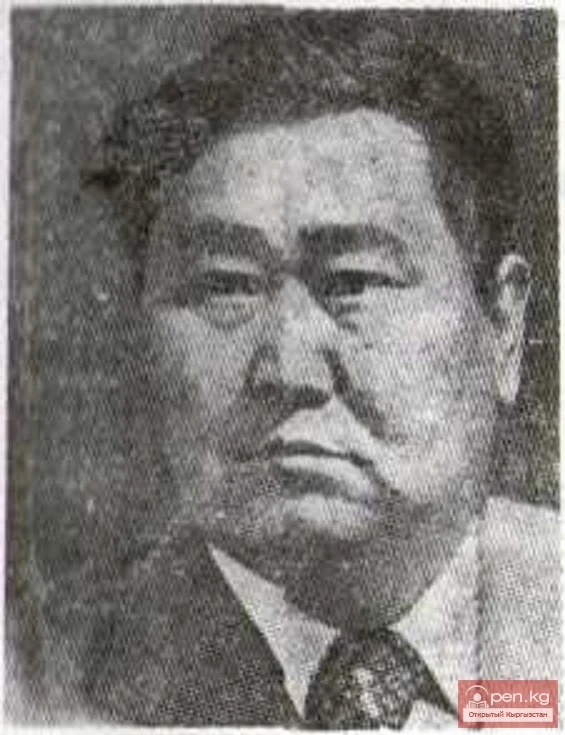
Poet Dzholdoshbay Abdykalikov
Poet J. Abdykalikov was born in the village of Tashtak in the Issyk-Kul district of the Issyk-Kul...
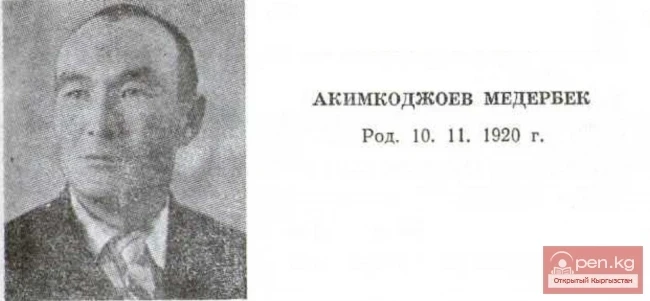
Poet Mederbek Akimkodzhoev
Poet M. Akimkodzhoev was born in the village of Bazar-Turuk in the Jumgal district of Naryn region...
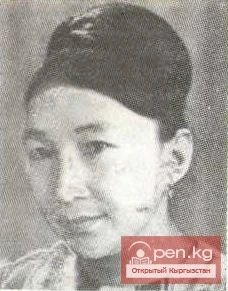
The Poet Jumakan Tynymseitov
The poet J. Tynymseitova was born on 11. 1929—29. 07. 1975 in the village of On-Archa in the...
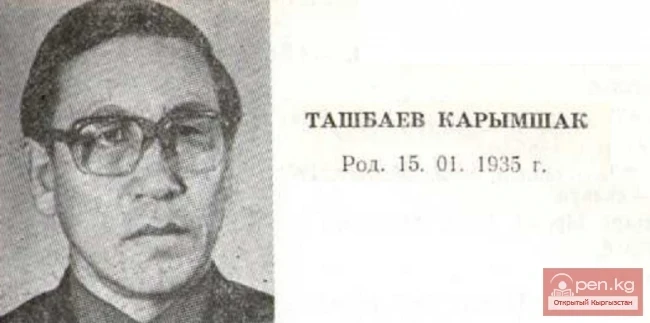
Poet Karymshak Tashbaev
Poet K. Tashbaev was born in the village of Shyrkyratma in the Soviet district of the Osh region...
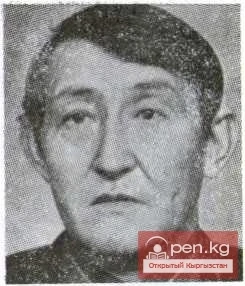
Poet Akynbek Kuruchbekov
Poet A. Kuruchbekov was born on December 5, 1922 — November 29, 1988, in the village of Eryktu,...

The Poet Kubanych Akaev
Poet K. Akaev was born on November 7, 1919—May 19, 1982, in the village of Kyzyl-Suu, Kemin...

The Poet Baidilda Sarnogoev
Poet B. Sarnogoev was born on January 14, 1932, in the village of Budenovka, Talas District, Talas...
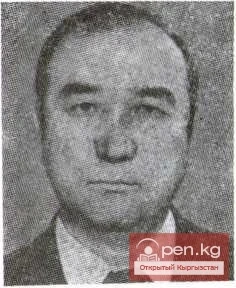
Poet, Prose Writer Dzhenbap Mambetaliev
Poet and prose writer D. Mambetaliev was born on December 18, 1938, in the village of Ottyk,...
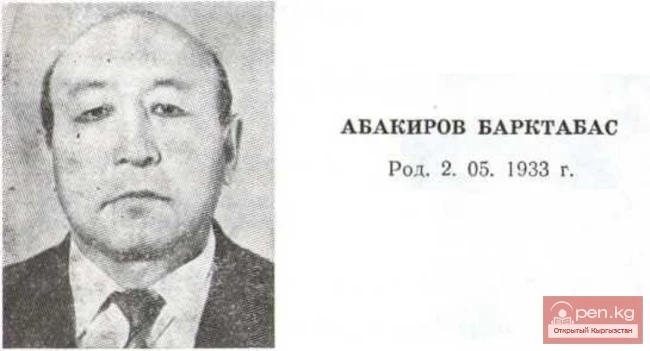
Poet, Journalist Barktabas Abakirov
Poet and journalist B. Abakirov was born in the village of Kum-Dyube in the Kochkor district of...
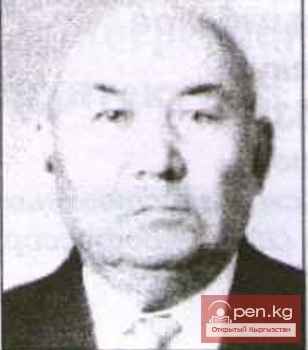
Kasymbekov Beishabay
Kasybekov Beyshabay (1933), Doctor of Veterinary Sciences (1991), Professor (1998) Kyrgyz. Born in...
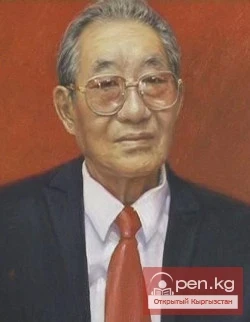
Poet, Prose Writer Isabek Isakov
Poet and prose writer I. Isakov was born on September 1, 1933, in the village of Kochkorka,...
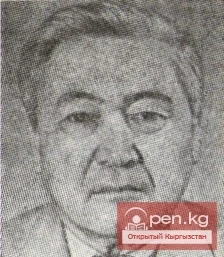
Prose Writer, Translator Bakan Sexenbaev
Prose writer and translator B. Sexenbaev was born on August 20, 1932, in the village of Burana,...

Poet, Prose Writer Tash Miyashev
Poet and prose writer T. Miyashev was born in the village of Papai in the Karasuu district of the...
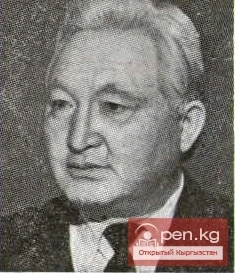
Poet, Translator Orozbay Sulaymanov
Poet and translator O. Sulaymanov was born on February 20, 1928, in the village of Novorossiysk,...
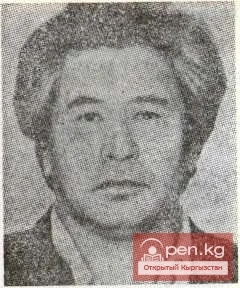
Poet Ramis Ryskulov
Poet R. Ryskulov was born on September 9, 1934, in the village of Kyzyl-Tuu, Moscow District,...
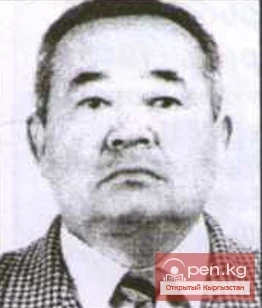
Zhorobekov Zholbors
Zhorobekov Zholbors (1948), Doctor of Political Sciences (1997) Kyrgyz. Born in the village of...
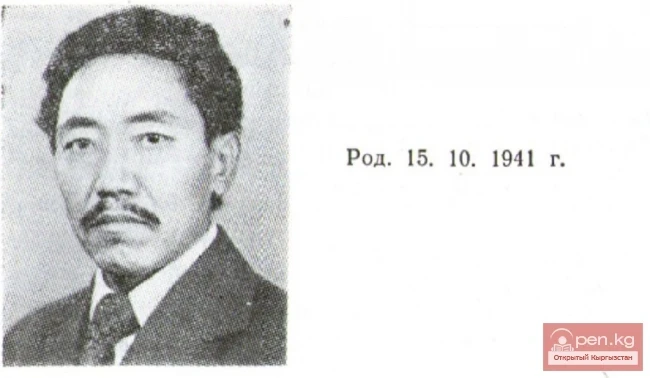
Poet Orozbay Kochkonov
Poet O. Kochkonov was born in the village of Kalinino in the Jangi-Jol district of the Osh region...
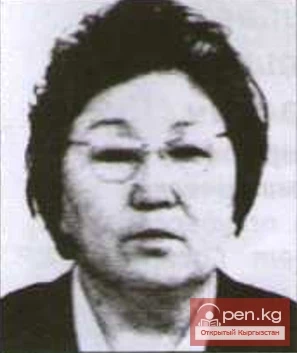
Kerimzhanova Bubu Dyikanbaevna
Kerimjanova Bubu Dyikanbaevna (1920-1993), Candidate of Philological Sciences, Corresponding...
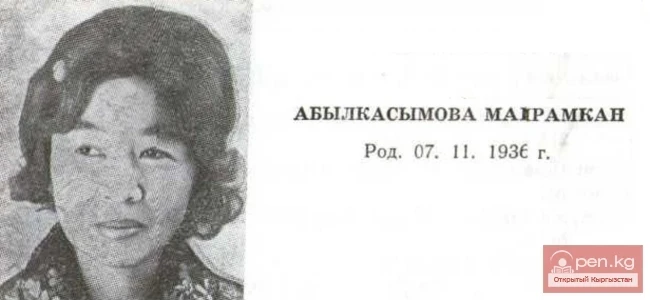
Poet Mayramkan Abylkasymova
Poet M. Abylkasymova was born in the village of Almaluu in the Kemin district of the Kirghiz SSR...

The Poet Suerkul Turgunbaev (S. Zhan)
Poet S. Turgunbaev was born in the village of Besh-Kadam in the Bazar-Kurgan district of the Osh...
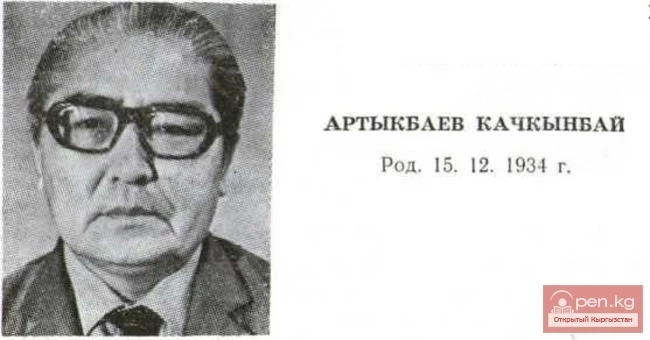
Critic, Literary Scholar, Poet Kachkynbai Artykbaev
Critic, literary scholar, poet K. Artykbaev was born in the village of Keper-Aryk in the Moscow...
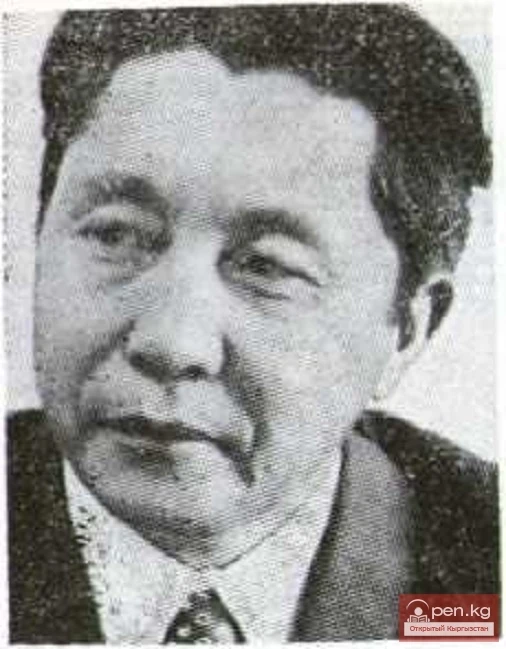
Prose Writer Kalkanbay Ashimbaev
Prose writer K. Ashimbaev was born on September 10, 1932, in the village of Kairma-Aryk, Ak-Suy...
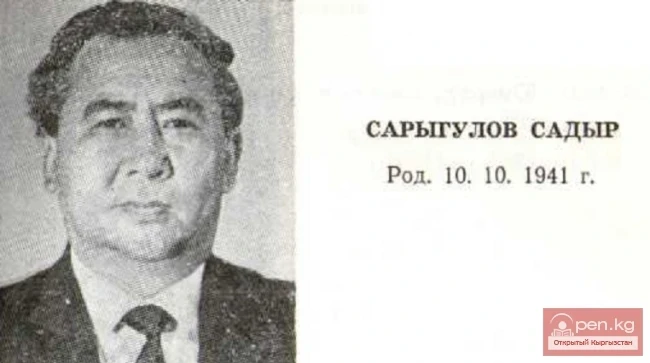
Prose Writer, Playwright Sadyr Sarygulov
Prose writer and playwright S. Sarygulov was born in the village of Bayetovo in the Ak-Tal...
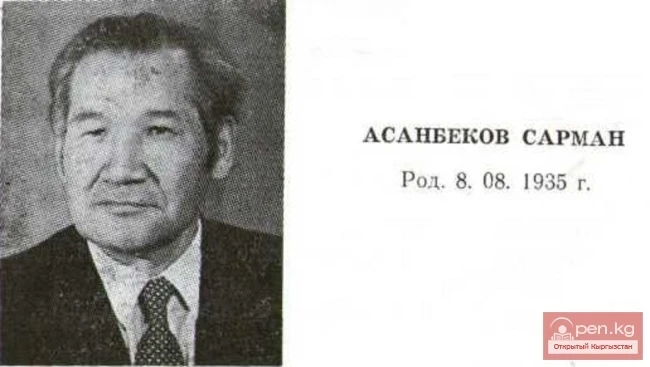
Poet, Art Historian Sarman Asanbekov
Poet and art critic S. Asanbekov was born in the village of Aral in the Talas region of Kyrgyzstan...
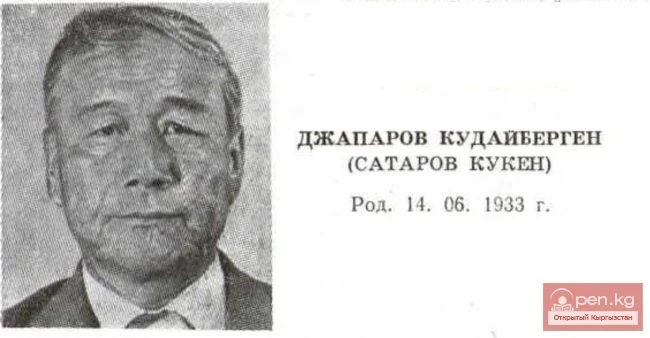
Prose Writer Kudaibergen Dzhaparov
Prose writer K. Dzhaparov was born in the village of Saz in the Sokuluk district of the Kyrgyz SSR...

Prose Writer Duyshen Sulaymanov
Prose writer D. Su laymanov was born in the village of Jilaymash in the Sokuluk district of the...
